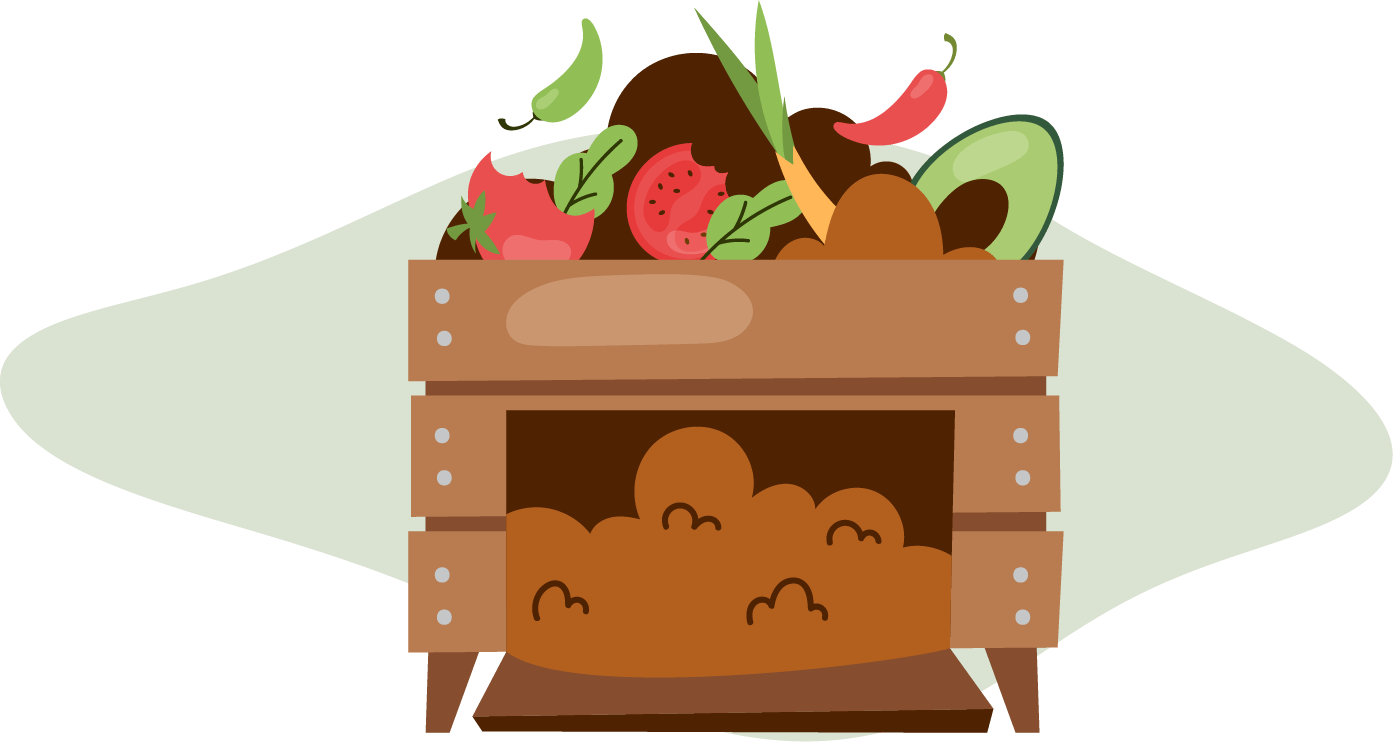Reducing waste at home
There are so many ways to reduce waste at home, and we know that it can be overwhelming figuring out where to start!
The first thing you should do is take a look in your rubbish bin – what kinds of things are you throwing out? Can you see any patterns?
From there, have a think about whether you could eliminate that rubbish from your life. For example, if you’re throwing out lots of soy milk tetra paks, could you make your own non-dairy milk from oats, cashews or sunflower seeds?
Could you use a concentrate to mix up your own at home? Or perhaps have a refill-your-own tap nearby? As a last resort, you could rinse the tetra paks and drop them off to a specialist recycler like saveBOARD in Hamilton.
We recommend focusing on changing one behaviour at a time – slow and steady wins the race when it comes to making long term changes! More for ideas and inspiration, you can:
- Join Waipā District Council’s Facebook page - we often fund or run waste minimisation events
- Sign-up for our e-newsletter to get local waste minimisation news straight into your inbox
- Follow the 'Zero Waste in NZ' group on Facebook, or;
- Local waste minimisation heroines on Instagram: Nic at mainstreamgreen and Katie at zerobelowbykatie
Play the YouTube clip to learn more about the simple ways you can reduce plastic use at home, hosted by Nic from Mainstream Green.
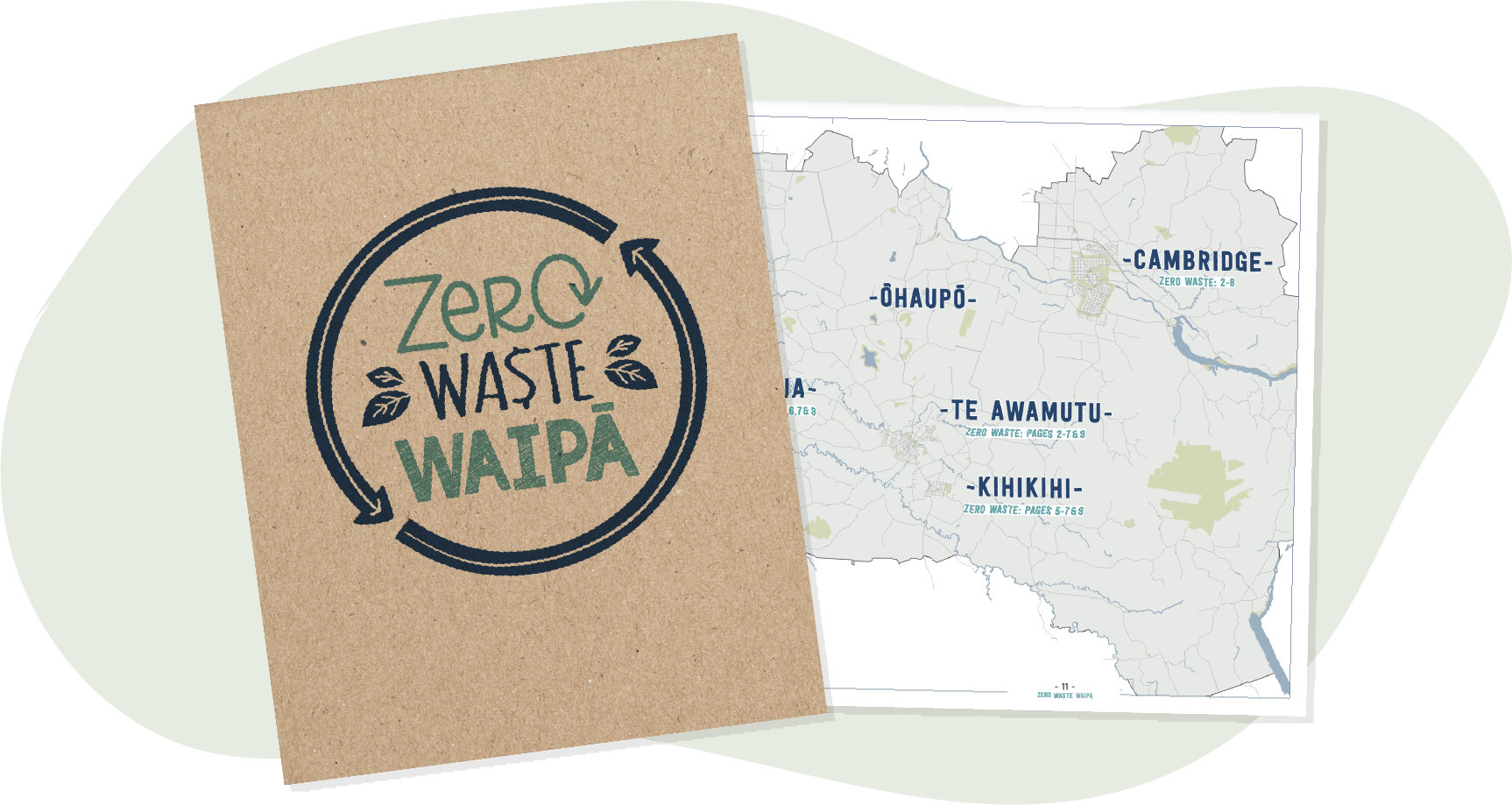
Zero Waste Waipā Guide
Waipā has a thriving shopping scene with lots of stores, markets, and products that are premium in quality but produce way less waste.
These secrets were too good not to share so we developed a guidebook to support our local businesses and share where and how to find these great zero waste options.
The Zero Waste Waipā Guidebook lists all the places where you can shop plastic-free (or mostly plastic-free), where you can buy milk in glass, butchers who accept reusable containers, how to get veggies delivered loose in a box, and all the incredible sharing locations and growers markets in Waipā. There are over 25 listings already! What a way to explore Waipā.
Food waste
We opened up Waipā rubbish bags and found 36.6 percent of our rubbish was food waste.
That's 3.6kg a week for every house in the district! Just over half of food waste in New Zealand is 'avoidable', which means it was perfectly good to eat at some stage, but we let it go bad and put it into the rubbish bin. And sometimes we didn’t even open the packet before it was chucked into the bin! During the audit, we found a huge variety of food that still looked good to eat but was heading to a landfill where the lack of oxygen means it wouldn’t compost naturally. It also creates methane, which is a climate warming gas 28 times more powerful than carbon dioxide.
We’ve got to do better Waipā! We need to value the food we have, who grew it, and all the resources that went into making it fit to be eaten. Plus - food costs a fortune these days, and if we can reduce food waste, we’ll save money too. Check out some easy ways you can look after your food, prolong its edible life, and use up what you have below.
Sharing is caring
If you have excess fruit or veggies at home, there are a few places you can share it.
Check out page 6 and 7 of the Zero Waste Waipā Field Guide for paataka kai and community pantry locations, Crop Swap events, and community fruit harvesting.
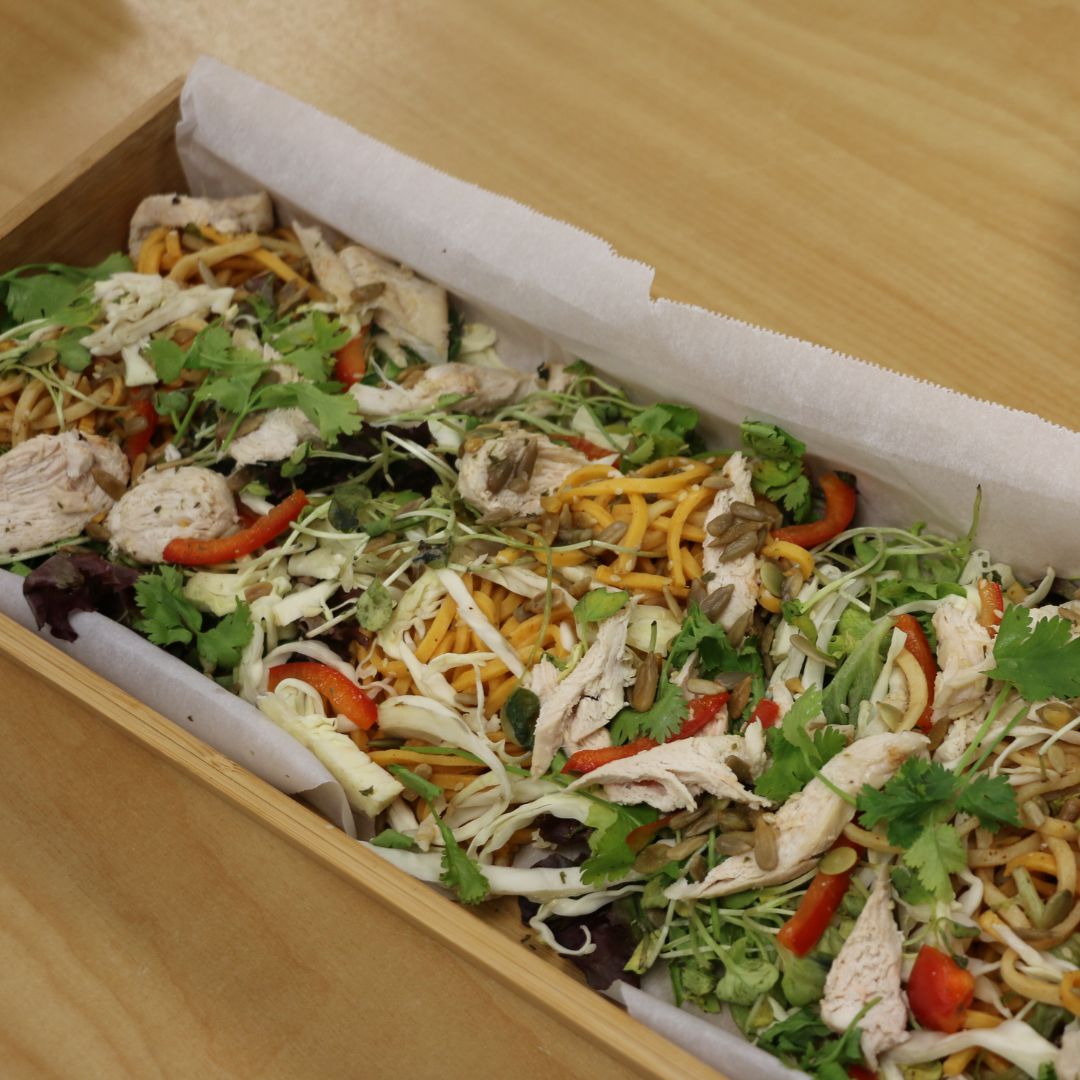
Recipes from the rubbish
Looking to minimise your waste and create delicious meals from rubbish-destined food scraps?
Our 'Recipes from the Rubbish' recipe guide is here to help! Local Chef Lylie shares her top three ways to use up food items we commonly find in our rubbish audits: bread, cooked leftover meats, and winter vegetables.
It’s not just a Waipā problem - bread is the second biggest avoidable food that’s wasted in NZ kitchens. Once you see Lylie’s bread and butter pudding recipe you won’t be left wondering what to do with extra bread!
Love a list
The best ways to reduce food waste is to eat what you already have and to shop with a list.
You can keep your list on your phone, on your fridge, scrawl it on an old envelope - just remember to take it with you!
Shopping to a list will save you money and reduce food waste.

My cousin gets their food scraps picked up as part of their recycling – why don’t we have that in Waipā?
In mid-2023, the Government mandated that all Councils in New Zealand must deliver a food scraps service to urban properties. For those Councils close to existing composting facilities with capacity, the service must be in place by 2027. You can find out a little more on our Food Scraps page and to stay informed, sign up to our e-newsletter.
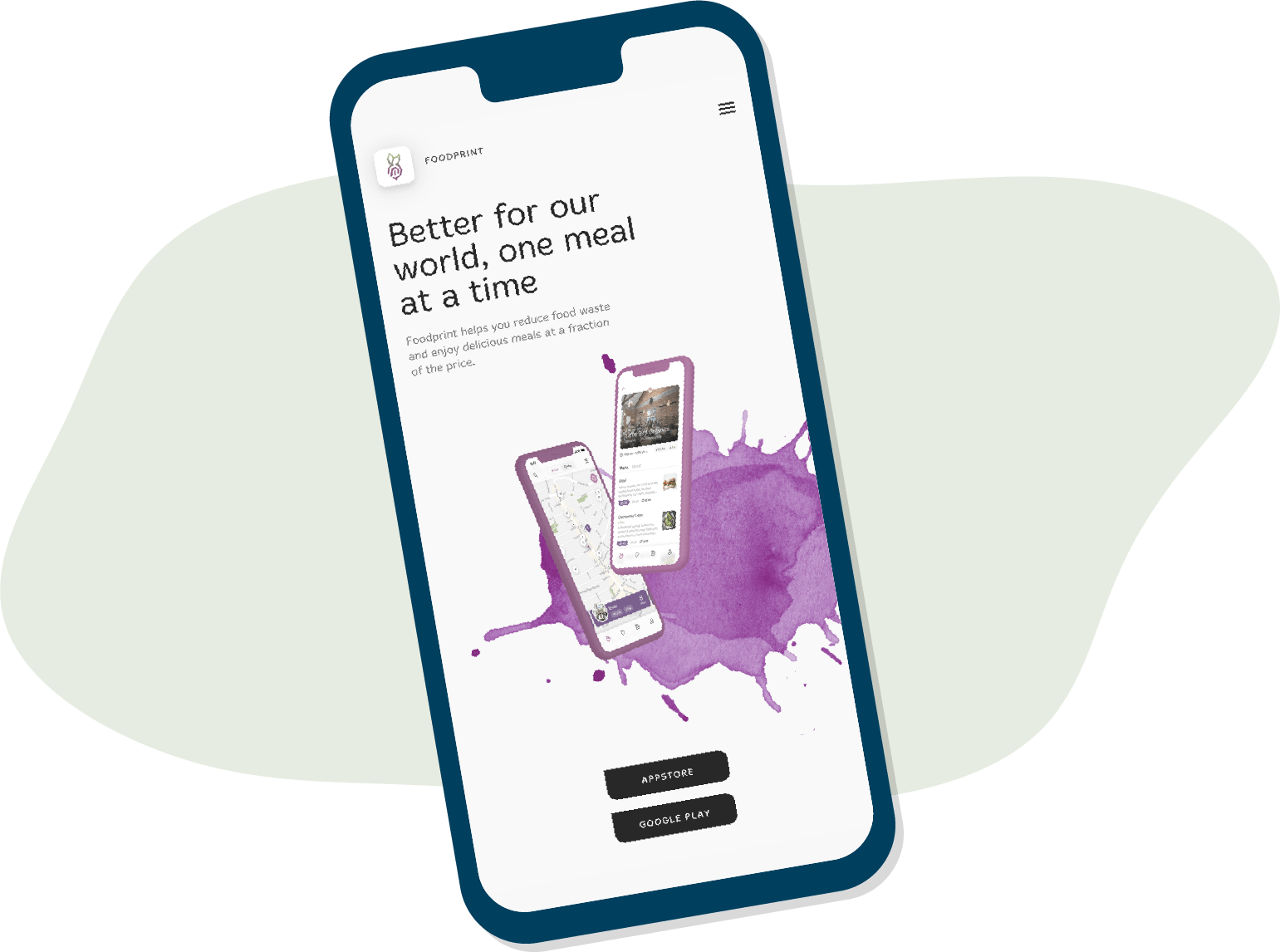
Foodprint
Foodprint is an app that connects customers to eateries and allows users to snap up food that would have gone to waste – and all at a discounted price.
The app was launched in Waipā in 2022 and has resulted in 630 kgs (and counting) of already-prepared food being eaten rather than landfilled! Awesome work from our local eateries and Foodprint customers!
Foodprint is a free app you can download from the Apple Store or Google Playstore. It’s easy to sign up, and allows users to browse nearby eateries via a map, follow their favourite cafes, and receive push notifications when food is listed. All food is correctly stored until the customer arrives and is at least 30 percent off regular pricing. So, if you like a bargain, like to support local businesses, and reduce food waste, download Foodprint today!
Love Food Hate Waste?
Waipā District Council supports the national Love Food Hate Waste programme which provides lots of handy tips and recipes to help you reduce your food waste and save money.
Every year New Zealand homes throw away 157,389 tonnes of food - this is enough to feed the whole of Dunedin for nearly three years! Wasting this much food costs the average household $560 a year. Jump online and find out about menu planning and storing food types correctly, and there is even a recipe generator which suggests recipes if you’re trying to use up particular ingredients.
Easy Choice Family Kai cookbook
A Love Food Hate Waste initiative, the Easy Choice Family Kai cookbook and menu planner helps families shop for and eat nourishing affordable food. All the food bought for the week is used up, none ends up in the bin!
The seasonal cookbook provides plans for dinner meals on a budget for a family of six (two adults and four children under ten) or four adults. There's also tips to help you reduce food waste while cooking and preparing dinner. Each cookbook provides four weeks of dinner recipes made from seasonal ingredients, with shopping lists as well.
Raumati/Summer
- Download and view on your mobile device: Easy Choice Family Kai - raumati/summer recipes
- A4 booklet: Easy Choice Family Kai - raumati/summer recipes
- Just the shopping lists: Easy Choice Family Kai - raumati/summer recipe lists
Kōanga/Spring
- Download and view on your mobile device: Easy Choice Family Kai - kōanga/spring recipes
- A4 booklet: Easy Choice Family Kai - kōanga/spring recipes
- Just the shopping lists: Easy Choice Family Kai - kōanga/spring recipe lists
Hōtoke/Winter
- Download and view on your mobile device: Easy Choice Family Kai - hōtoke/winter recipes
- A4 booklet: Easy Choice Family Kai - hōtoke/winter recipes
- Just the shopping lists: Easy Choice Family Kai - hōtoke/winter recipes lists
Tokerau/Autumn
- Download and view on your mobile device: Easy Choice Family Kai - autumn recipes
- A4 booklet: Easy Choice Family Kai - autumn recipes
- Just the weekly shopping lists: Easy Choice Family Kai - autumn recipe lists
Grow your own
Does salad in the bag go bad too fast for you?
Grab some mixed lettuce seedlings from your local garden shop or supermarket (look for ones wrapped in newspaper or return the punnet for recycling next time you’re in store) and pop them into the garden. Water deeply every few days and you will have fresh leaves for salads for weeks for about the same price as one bag of salad.
Our Cambridge local, Nicola from Mainstream Green, did a blog series on easy ways to grow food at home: microgreens, regrowth, boxed up and mushrooms.
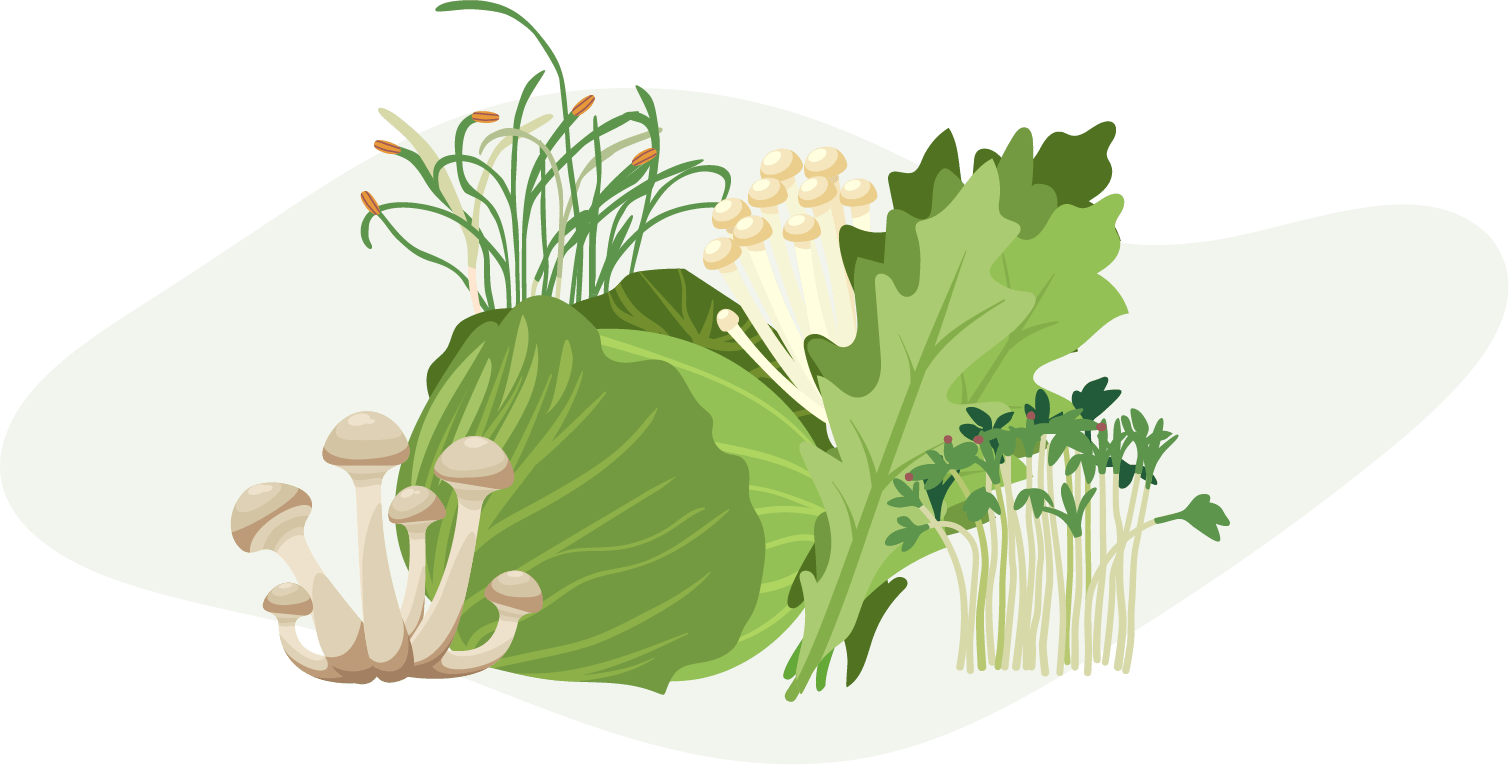

I’m renting for a short term and I don’t want to invest heaps of money into the garden. What can I do?
You can plant your veggie seedlings directly into a large pot or even a plastic bucket – make sure to drill or “nail” some drainage holes first though. You’ve now got a portable veggie garden for your deck!
Composting at home
Worm farming and composting are nature's way of recycling.
There is always some food waste we can’t avoid, like avocado or banana skins. Check out our Garden waste section for more info and tips on how to get started.
